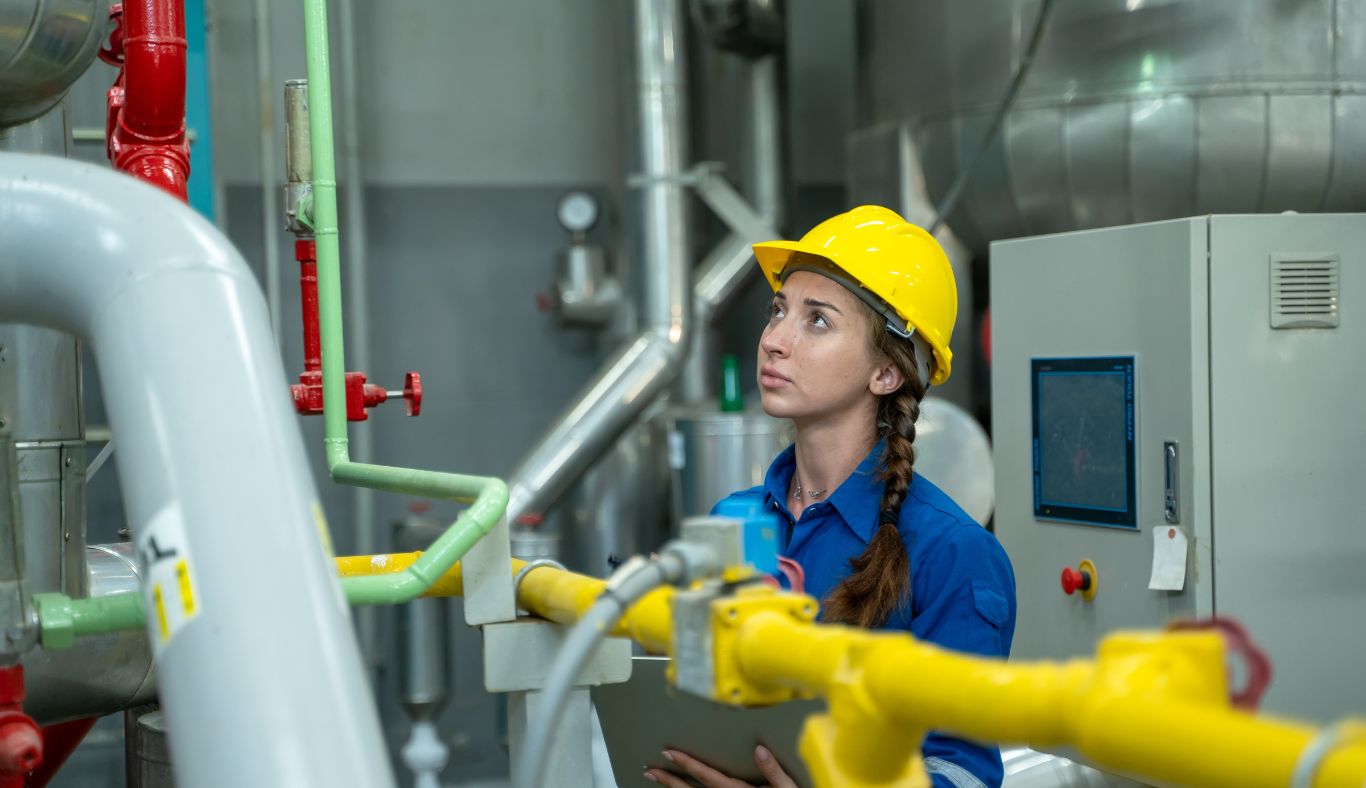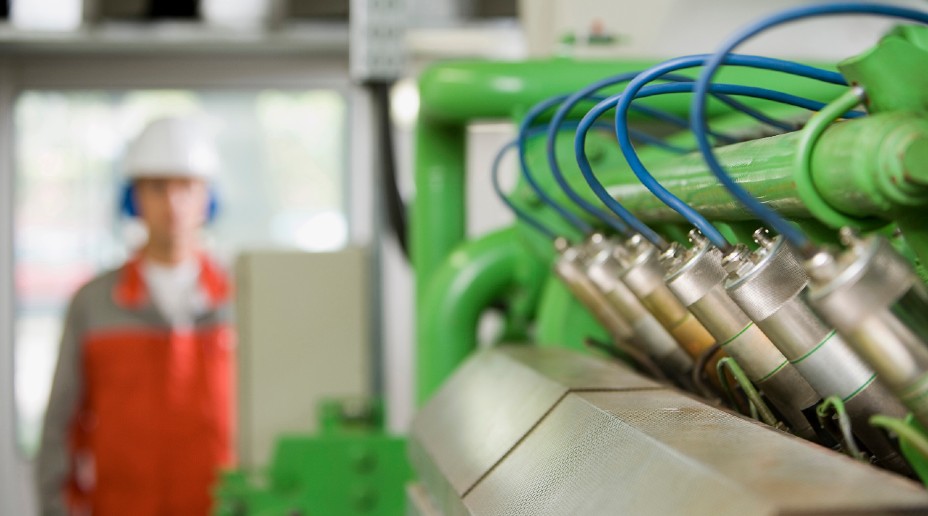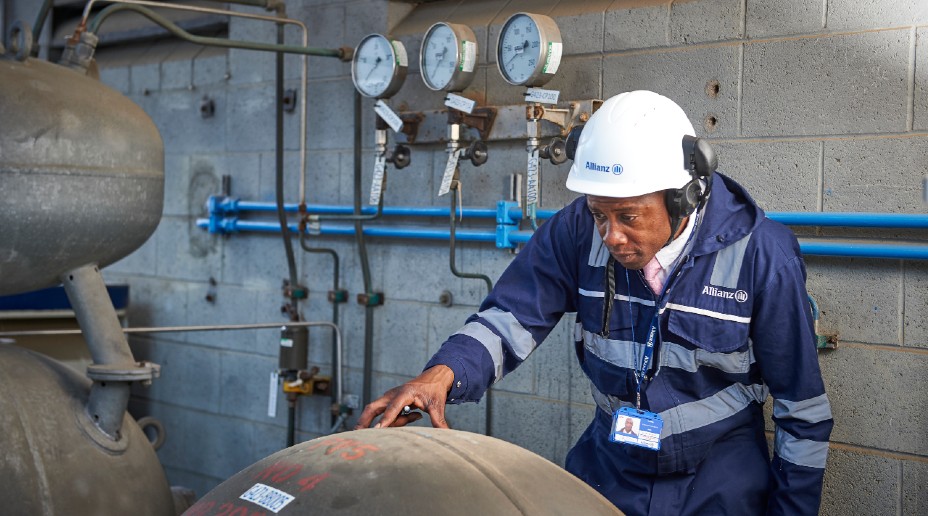- Written Schemes of Examination (WSE)
- Non-destructive testing of storage tanks, reactor vessels, pipework and more
- Examination of all relevant vessels, pipework, storage and mixing tanks across the whole COMAH scheme
For more information on our range of services,
or to book an inspection, please get in touch.
When storing dangerous substances, you must ensure they cannot cause harm to people or the environment. We're here to support you to meet your obligations under the requirements of COMAH.
From providing you with Written Schemes of Examination (WSEs), to on-site non-destructive testing (NDT) of your equipment. Our experienced engineer surveyors find any potential hazards and produce a suitable inspection procedure, giving you, your team and your customers total peace of mind.
Our COMAH inspection service options
With extensive experience and the largest network of engineer surveyors in the UK, our COMAH inspection services are designed to help your business and workforce remain compliant and safe.
COMAH inspection services
Not sure which service is right for you?
Learn more about our service options or contact one of our experts.
COMAH Inspection Services FAQs
COMAH stands for the Control of Major Accident Hazards Regulations 2015. COMAH regulations are designed to prevent major accidents involving dangerous substances, and limit the consequences accidents can have for people and the environment.
If you store large amounts of dangerous substances, COMAH states that you must take all measures necessary to prevent major accidents and to limit their consequences for human health and the environment. Regular inspections by trusted, qualified engineer surveyors are a major part of meeting your legal requirements.
A COMAH site is any establishment that stores or handles large amounts of hazardous industrial chemicals, such as oil and gas refineries, chemical manufacturers and petrochemical factories.
Examples of dangerous substances include:
- acutely toxic chemicals, such as chlorine, ammonia and hydrogen sulphide
- unstable explosive substances
- flammable gases, aerosols and liquids
- oxidising gases, such as oxygen and compressed air
- pyrophoric liquids and solids.
A complete list of dangerous substances can be found in Schedule 1 of the COMAH 2015 regulations.
COMAH sites are split between ‘Upper Tier’ and ‘Lower Tier’ establishments, depending on the amount of a dangerous substance you store on your premises. The thresholds for these tiers vary based on the specific type of substance (e.g. the lower tier for chlorine begins at 10 tonnes, while the upper tier starts at 25 tonnes).
Our engineer surveyors are highly trained in all aspects of COMAH, providing you with a range of risk-based inspection services that ensure you comply with regulations and protect your teams.
We deliver detailed Written Schemes of Examination (WSE), containing all the inspection information you need for your COMAH systems. Through our extensive inspection planning, we cover all bases to give you complete reassurance.
From here, we offer non-destructive testing (NDT) of your plant and equipment to identify potential hazards. Across storage tanks, reactor vessels, pipework and more, our in-depth inspection techniques locate even the smallest defects, so you are made aware of any issues and advised on how to resolve them.
You can see a full list of our available services here.
COMAH inspections are critical for risk management and guaranteeing the health and safety of your sites. They ensure that any damage to mechanisms or faults in your vessels are quickly identified before they endanger your workforce or harm the environment.
COMAH inspections also check that the engineering controls you have in place to minimise the risk of accidents, spillages or explosions are working effectively, confirming that you can restrict the damage if incidents occur.
If your sites are found to breach COMAH regulations, you could face significant six-figure fines, and potentially even imprisonment. Regular inspections go a long way to ensure that your business is compliant at all times.
COMAH integrity management is required in a wide range of industries, including (but not limited to):
- oil and gas refineries
- natural gas storage sites
- fireworks factories and warehouses
- chemical and pharmaceutical plants
- petrochemical factories
- fragrance and flavouring factories
- paint factories.
Beyond a legal requirement, your organisation can benefit significantly from our COMAH inspection services:
- You confirm the safety and performance of your hazard controls, protecting employees and others from exposure to hazardous materials.
- Any potential faults or weaknesses are found, so they can be rectified quickly and cost-effectively.
- You ensure that you can limit the impact of a major accident on both your people and the surrounding environment.
- You reassure your customers, suppliers and other partners that you can store dangerous substances with absolute security.
The Hierarchy of Controls is a display of measures a workplace can take to control the exposure of hazardous substances. These five levels of action are ordered based on the most effective route to remove risk (elimination) to the least effective (PPE):
1. Elimination: Physically remove hazards.
2. Substitution: Replace hazardous materials.
3. Engineering controls: Isolate people from hazards.
4. Administrative controls: Change how people work.
5. PPE: Protect workers with equipment.
Speak to our team to explore our range of service options.
Why choose Allianz for your COMAH inspections?
of inspection services in the UK, our meticulous assessments and focus on managing all potential risks helps you maximise
workplace safety and achieve long-term compliance with COMAH.


